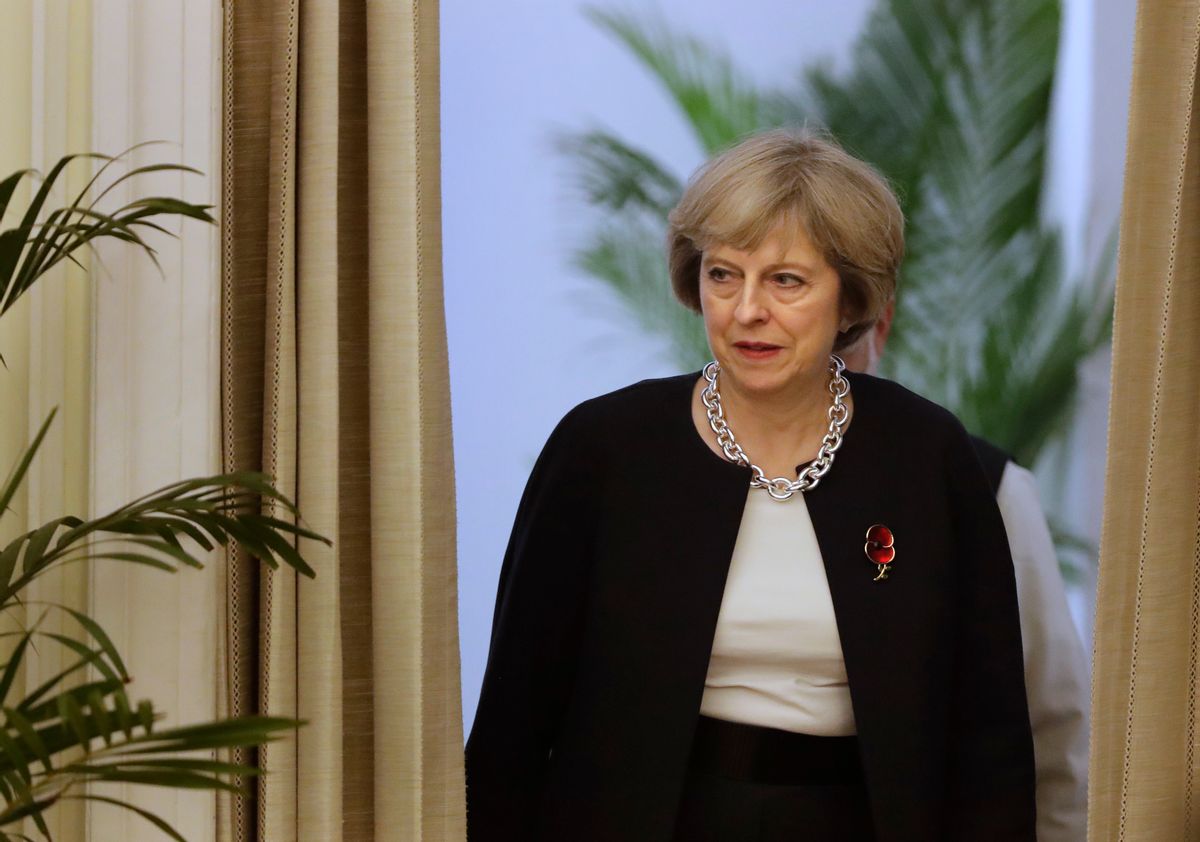 Prime Minister Theresa May is a cautious, wooden, rather mediocre politician who is not at all in the same league as Angela Merkel. She is also a lady for turning, as evidenced by her U-turns on key manifesto pledges.
Prime Minister Theresa May is a cautious, wooden, rather mediocre politician who is not at all in the same league as Angela Merkel. She is also a lady for turning, as evidenced by her U-turns on key manifesto pledges.
The lady easily panics
She is also quite a panicky lady. The reason for that is self-evident: During Labor’s rule, she had made little impact in her years in opposition.
The summary judgment from that period: Competent, charmless, composed, but every inch at best a lower order shadow minister.
Too ambitious for her own good
But that didn’t mean that May wasn’t very ambitious. She had long yearned to become prime minister one day.
That she made it to the post is less a function of some miraculous conversion of her own political faculties.
An accidental prime minister
Rather, it is that she serves as an accidental prime minister who only won the office because all the big Tory beasts who won the Brexit vote (which removed David Cameron) could not agree on a successor.
They stabbed and axed each to death in the post-Brexit vote nights of long knives. As a carmine sea of blood rose outside Downing Street, a boat slowly appeared and Mrs. May was floated into No 10.
Losing a sure hand
Under those circumstances, it is certainly understandable that Theresa May called an election six weeks ago.
It seemed an ideal moment to do so. The Conservatives were massively ahead of Labour in opinion polls. In fact, Labour was barely afloat as MPs refused to back their leftist leader, Jeremy Corbyn.
However, in calling the election two years after the Conservatives won a clear majority in 2015, Mrs. May had to tear up Britain’s constitutional law stipulating elections should be held at 5-year intervals.
Too many elections
But British voters are tired of national polls — the Scottish referendum in 2014, the general election in 2015, the Brexit plebiscite in 2016 and now Mrs. May’s vanity election in 2017.
It is as if Britain is another version of Italy — some unstable nation required to go to the polls every year.
Mrs. May has control of the House of Commons. She has 330 Tory MPs, compared to Labour’s 229. The Liberal Democrats have only 8 and, while there are a few dozen Scottish, Northern Irish and other MPs, the Tories do rule the roost.
But still she insisted on holding her election. And thus, the die was cast.

Shares